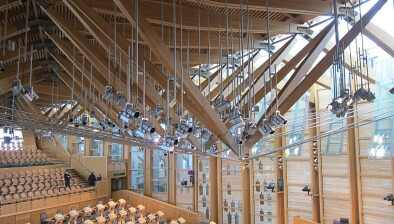Six-month extension to short-term let licensing scheme

The Scottish Government is to delay its plans for a short-term let licensing scheme by at least six months.
In a letter to the convener of the Scottish Parliament’s Local Government Committee Ariane Burgess, cabinet secretary for housing Shona Robison confirmed the government will now amend the date by which existing operators must apply for a licence from 1 April 2023 to 1 October 2023.
The Association of Scotland’s Self-Caterers (ASSC), which had lobbied against the proposal, said the extension was only made possible after pressure applied by the ASSC and other tourism stakeholders due to the impact of the cost-of-living crisis on the industry.
The ASSC said small accommodation providers were enduring onerous and expensive red tape just to continue what they had been doing for decades. This additional expense, in the context of Covid recovery and the cost crisis, placed severe pressure on the sector, it added.
In the letter, Ms Robison said it is a “one-off” six-month extension recognising the wider economic circumstances of the cost of living crisis that is placing pressure on existing short-term let hosts and businesses at a time when they are organising and budgeting for work to comply with the new licensing requirements.
“We do not intend to propose a change to arrangements for new hosts, who will still be required to obtain a licence before they can accept bookings and receive guests. This upholds the purpose of introducing licensing, which is to ensure all new short-term lets across Scotland meet mandatory conditions (including safety standards) and are provided by
fit and proper people. I am content that the current legislation still allows the sector to expand, with authorities having discretion to consider licence applications from prospective buyers of short-term let businesses with the current owner/s consent,” the letter adds. “In light of this proposed amendment to extend the deadline for applications from existing hosts, I am re-considering the scope and timing of the licensing review we intended to undertake in Summer 2023. I will update the Committee on this in due course.”
According to the ASSC, operators were faced with eye-watering fees in a confusing and inconsistent system, jeopardising jobs and livelihoods in an important part of Scotland’s tourism industry. The self-catering sector boosts the Scottish economy by £867m per annum, supporting 24,000 jobs. It provides a vital source of alternative accommodation for major events like the Edinburgh Festivals whose future viability remains at risk due to draconian short-term let regulations.
Elsewhere, the UK Government has committed to a registration scheme, while the European Commission has outlined proposals on regulation on data collection and sharing relating to short-term accommodation rental services.
While this delay will provide some momentary respite for the self-catering industry, the ASSC believes the Scottish Government must work in lockstep with industry and local councils to minimise the regulatory burden to support small business.
Fiona Campbell, chief executive of the Association of Self-Caterers, said: “The ASSC welcomes this announcement by the Scottish Government and we are pleased our hard work, as well as the efforts from our friends across the Scottish tourism industry, has resulted in this development. The ASSC has been pressing hard for a pause to the implementation of the scheme due to the cost-of-living crisis so it’s good to know our voices are being heard.
“Our ongoing concern, however, is that it is not long enough to give our members the breathing space they need to get their license applications approved in the current climate. We do see this as progress and we will continue to push forward on behalf of our members, we know there’s lots of work still to do.”







